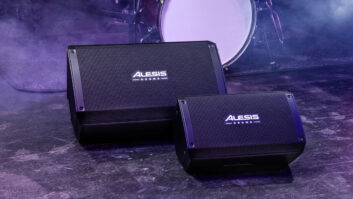NEW YORK — Windows 8 is simultaneously taking the blame for falling PC sales and being hailed as the savior for the desktop and laptop categories.
Worldwide PC shipments in the first quarter of the year posted the steepest decline ever recorded by research firm International Data Corp. (IDC) and its analysts directly blamed the situation on Microsoft’s Windows 8 operating system.
“At this point, unfortunately, it seems clear that the Windows 8 launch not only failed to provide a positive boost to the PC market, but appears to have slowed the market,” said Bob O’Donnell, IDC program VP, clients and displays.
O’Donnell noted that the radically different user interface and the fact it functions best when used in a touchscreen environment makes PCs running Windows 8 a much less attractive offer than tablets. These factors, combined with the overall strong consumer interest in tablets and smartphones, put PCs at a huge disadvantage in the market, he said.
Gartner’s Isabelle Durand, principal research analyst, agreed, saying that touchscreen-based Ultrabooks and ultrathin laptops have a chance to make up some of the category’s shortfall, but the high price of adding a touchscreen has been a major reason consumers have shown little interest in the technology.
However, Calvin Hsieh, research director at NPD DisplaySearch, is taking a positive approach saying the operating system will eventually help drive sales of touchscreen-equipped computers.
Hsieh did preface his statement by stating that the price of touchscreen laptops has to come down.
“When consumers consider purchasing a notebook computer with touchscreen functionality, the cost of the device is more important than its form factor. If prices decline sufficiently, then penetration of touch into the 200 million unit global market and growth in larger screen sizes would drive significant growth for touchscreens in the coming quarters,” he said.
For the first quarter of 2013 the impact of Windows 8 did not help unit shipments either worldwide or in the United States.
IDC reported shipments fell 13.9 percent year over year to 76.3 million for the quarter. This falloff was the largest tracked by IDC since it began covering the PC market in 1994, the company said.
Gartner also noted a large decrease, but its numbers were not as harsh. The Stamford, Conn.-based research firm pinned first-quarter shipments at 79.2 million, an 11.2 percent drop from 2012.
Gartner and IDC have slightly different methodologies in tracking the category.
This is the fourth consecutive quarter with a decline in worldwide PC shipments.
Hewlett-Packard saw its worldwide leadership position all but disappear as Lenovo has basically caught up. Gartner gave HP a 14.8 percent share to Lenovo’s 14.7. IDC indicated the spread was slightly wider, with HP commanding 15.7 percent of the market to Lenovo’s 15.3 percent.
The U.S. PC market fared somewhat better although shipments were still down dramatically, according to IDC and Gartner.
Gartner reported a 9.6 percent decline, with 14.22 million units shipping during the quarter. IDC pegged the decline at 12.7 percent, with 14.19 million units shipping.
Gartner’s report had Apple and Lenovo showing increased shipments, up 7.4 percent and 13.8 percent, respectively. Hewlett-Packard and Dell suffered double- digit loses while Toshiba was down 5.3 percent.
IDC had four of its top five shippers losing ground, with only Lenovo showing a shipment gain. The losers were led by HP and Dell. Apple tumbled 7.5 percent, and Toshiba was down 5.2 percent.













